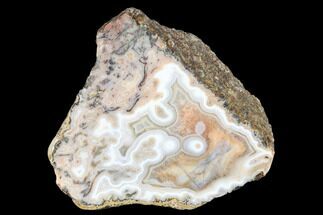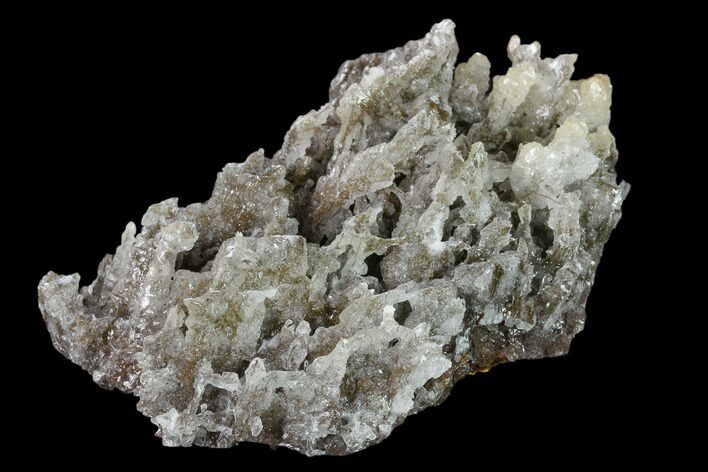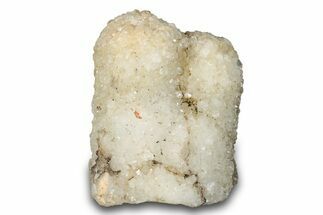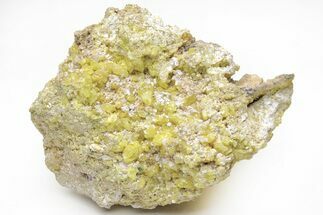This Specimen has been sold.
4.2" Calcite & Aragonite Stalactite Formation - Morocco
This formation of calcite coating aragonite comes from Ighoud, Morocco. This mass of mineral was removed from a cave where stalactite formations occur from iron-rich host rock and are enshrouded in layers of aragonite and calcite crystal.
Stalactites form when water, seeping through rock, reaches an opening such as a cave or tunnel. Once this mineral-rich water (calcite in this case) precipitates out of the rock wall/ceiling, it leaves behind a crystal as the precipitate builds with each drop of water.
Stalagmites are likely to form from this process as those drops land on a cave floor, since the drops from the ceiling will still contain high mineral content. As long as water keeps flowing, it will continue to precipitate into stalactites and stalagmites.
Stalagmites are likely to form from this process as those drops land on a cave floor, since the drops from the ceiling will still contain high mineral content. As long as water keeps flowing, it will continue to precipitate into stalactites and stalagmites.
Aragonite is one of two common calcium carbonate (CaCO3) minerals: the other is calcite, of which aragonite forms as a pseudomorph. Its crystal lattice differs from calcite, resulting in a different crystal shape. It displays a translucent to white color when pure, and when impure can vary between yellow, green, pink, blue and brown. It typically forms in low-temperature hydrothermal veins, in hot springs, and as precipitates from chemicals in sedimentary rock. It can also form under biological processes: aragonite forms naturally in most mollusk shells, and as the calcareous endoskeleton most corals.
 Reviews
Reviews














